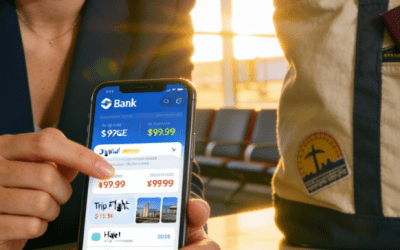A new generation is taking its place in the travel industry. After Millennials and their indecisiveness and Generation Z’s open-mindedness, we come to Generation Alpha (those born after 2010). The group is rapidly finding its voice when it comes to making travel decisions along with their families.
Although you might be thinking that they are still kids, their digital knowledge is much better than the previous generations, which makes them highly valuable in the travel-tech era
With travel being a racing game for companies in the industry, some important players such as Expedia, are wasting no time and are trying to breakdown the numbers and understand Gen Alpha’s behavior throughout the touchpoints of the travelers’ journey.
The latest Expedia Group study called “Generation Alpha & Family Travel Trends” starts by showing that in 60% of the families, when thinking about the next family trip, the decision-making process involves both the children and the adults. Taking into consideration that these families normally go on 2 or more trips per year, focusing on the young target is as important as focusing on the adults.
This generation is a great opportunity for marketers. These families are opened to any source of online inspiration, they usually have to choose between two destinations, and content can be very helpful when trying to decide. But, like all targets, this one also has its unique characteristics. Therefore, before making any moves, companies should analyse Geneneration Alpha travel behavior.
A trip with a Gen Alpha family
For this group of people, kids’ and adults’ convenience is key, therefore there are important aspects that can easily win against low prices. The most important factor for these families is that the destination provides activities for everyone, and that it is child-friendly, so parents do not have to worry about the safety of their kids – and that it is a once in a lifetime experience. These aspects are very valuable and have a large impact when it comes to deciding which destination or deal to choose.
The Expedia study shows that on top of taking over three vacations per year, each family vacation lasts about 7 days and that the preferred destinations are domestic ones. This data can be great for OTA’s, for example, when developing holiday packages.
Moreover, themed parks and water activities are the top listed entertainments by most families, but are not the only ones. Keeping in mind that these are tech-savvy kids, the amount of technology available during a trip is also very important. Having access to online entertainments such as videos, games and social media needs to be part of the entertainment set, and if the parents happen to be millennials, these features gain even more value.
Apart from OTA’s, hotels are also benefiting from this young generation. As for now, it is the preferred type of accommodation for Gen Alpha families. With that in mind, hotels should develop new child-friendly strategies to attract and retain these customers. Otherwise, it wouldn’t surprise us if other vacation rentals such as Airbnb started moving towards this trend.
If kids are now involved in the decision-making process of a trip, shouldn’t marketers be talking to them?
It is true that this generation Alpha is making marketers work harder. They are digital natives, have the longest living expectations, are better-educated than other generations, and are expected to account for almost 2 billion of the global population by 2025. But, they are still kids, which means that they lack what marketers need: financial power.
Although Gen Alpha kids are involved in the decision-making process of a trip, they do not have the final voice. Advertising to kids is not the right path to take but, when it comes to connecting with adults, the Expedia research shows that there are a few things marketers can do to communicate better. Some of the factors that can influence their decisions are appealing imagery (54%), deals (53%), informative content (50%) and helpful reviews (44%).
There is a lot of potential surrounding this new generation and its trends. But, as per usual, things develop fast in the travel industry, and the need for high-end digital channels and destination content becomes more eminent as generations pass. DMO’s, Hotels, OTA’s and all players in the tourism industry need to keep track of these kids, always bearing in mind that they will be the adults of the future.





